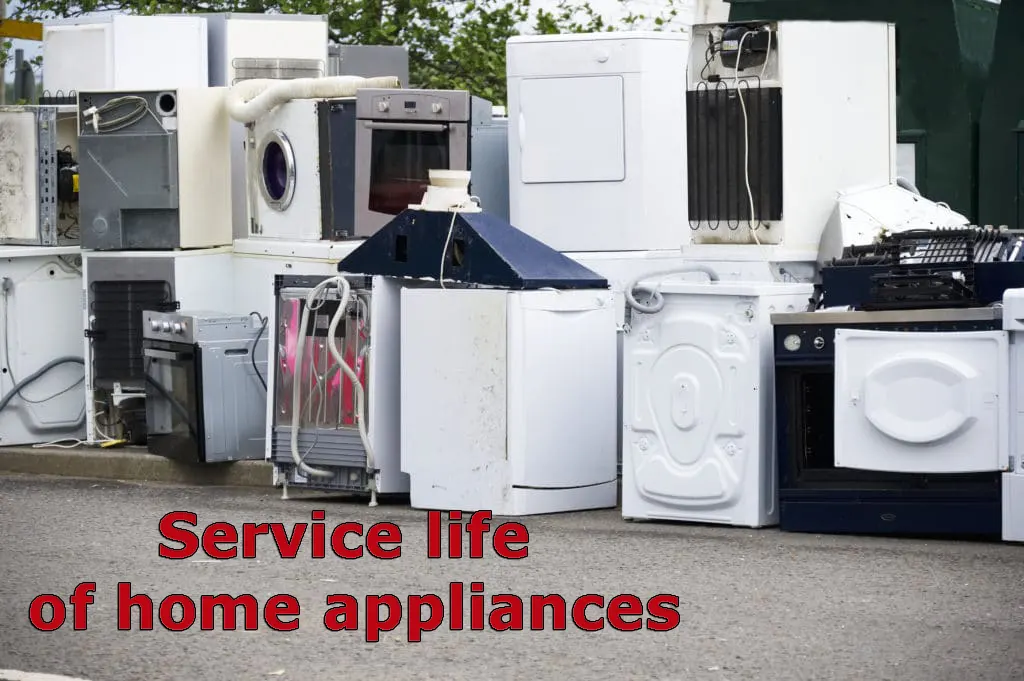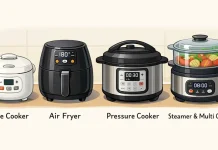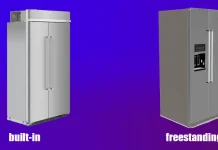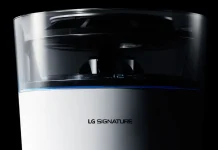The lifespan of home appliances and electronic devices can vary greatly depending on the make, model, operating conditions, maintenance, and technological advances. To get the whole picture, let’s categorize appliances and discuss their typical lifespans, keeping in mind that these are averages, and actual lifespans may vary.
But you should know that every appliance has a lifespan set by the manufacturer. Yes, there may be conditions under which such a service life is possible with regular maintenance and timely replacement of worn components and replacement devices (filters), if any. If the device fails during the service life and requires significant restoration costs, it is possible to obtain compensation from the manufacturer. Such a process is complex and requires effort, and, as a rule, such claims are combined in class actions against the manufacturer and end in a settlement.
Appliance life expectancy chart
| Life expectancy (years) | Min | Max | Average | service life (repair) |
| Refrigerators | 10 | 20 | 15 | 30 |
| Dishwashers | 10 | 15 | 12 | 20 |
| Washing Machines and Dryers | 10 | 15 | 12 | 20 |
| Refrigerators, Compact | 4 | 12 | 8 | 15 |
| Ovens and Stoves | 10 | 15 | 12 | 20 |
| Trash Compactors | 7 | 12 | 11 | 15 |
| Microwaves | 7 | 12 | 8 | 20 |
| Garbage Disposals | 10 | 15 | 12 | – |
| Mobile Air Conditioners | 5 | 10 | 8 | – |
| Window Air Conditioners | 8 | 15 | 11 | – |
| Central heating and cooling system | 15 | 20 | 18 | 30 |
| Water heaters | 15 | 20 | 17 | – |
| Small household appliances | 3 | 5 | 4 | – |
| Food Processor | 2 | 4 | 3 | 7 |
Lifespan of refrigerators
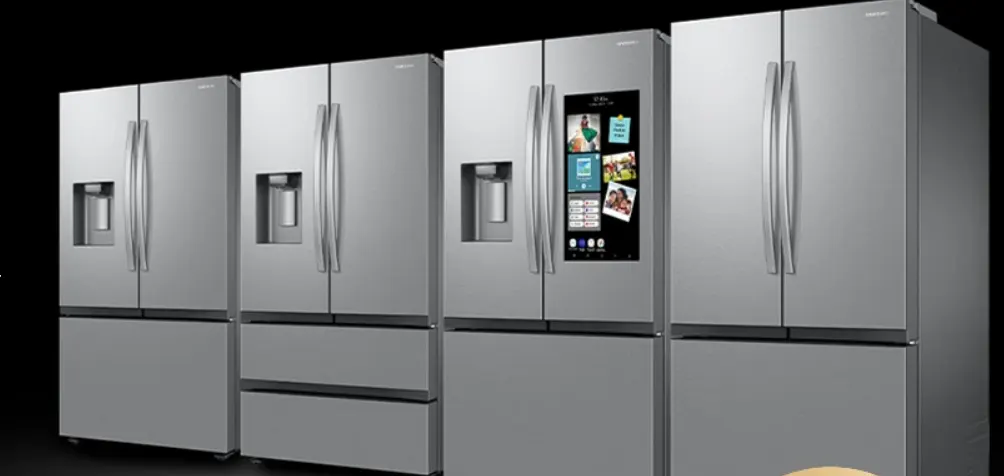
The lifespan of modern refrigerators typically ranges from 10 to 20 years, with higher-quality models potentially exceeding this range. The durability of a refrigerator is primarily influenced by the quality of its materials and assembly. Several key components and factors affect the service life of refrigerators:
- Ice Makers: Despite manufacturers’ efforts to improve reliability, ice makers are often prone to malfunction. The design is simple, but various factors can impact its performance, leading to frequent issues.
- Compressor: This crucial electric motor circulates refrigerant through the system. It often fails due to manufacturing defects. Replacing a compressor is only feasible in a specialized facility because it requires a replacement in an inert gas environment, which cannot be replicated in a standard workshop or at home.
- Cooling System: The complexity of the cooling system demands high-quality manufacturing. One common issue is contamination from soldering scales. Additionally, using aluminum in radiators in modern refrigerators can compromise longevity.
- Sealing Rubbers on Doors: Over time, the rubber seals on refrigerator doors degrade and lose their effectiveness, necessitating replacement to ensure proper insulation.
- Control Electronics: While generally reliable, the electronic components that control various refrigerator functions can also fail and may require repair or replacement.
Regular maintenance and timely replacement of particular parts are essential for the optimal functioning of refrigerators:
- Light Bulbs or LED Lights: These should be replaced to maintain visibility inside the unit.
- Water Filters: In models equipped with water dispensers or ice makers, water filters should be changed periodically according to the manufacturer’s recommendations to ensure water quality and prevent clogging or damage to the system.
In summary, the lifespan of refrigerators is affected by various components and factors, including the ice maker, compressor, cooling system, door seals, and control electronics.
Life span of dishwashers
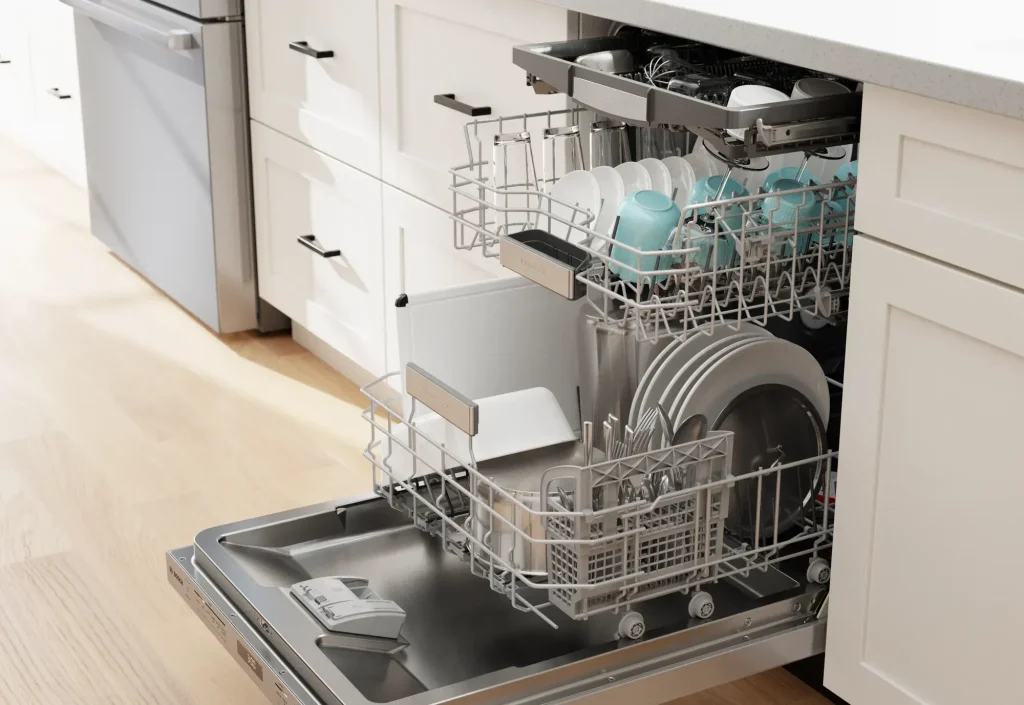
The average lifespan of dishwashers is between 10 and 15 years, depending on the quality of artistry. Different components of dishwashers may encounter problems that affect their overall life:
- Heating element: This component is prone to breakdowns, especially in challenging water areas. Failure to regularly use a unique water-softening salt can lead to premature heating element failure.
- High Water Pressure Pump: Drink water pressure pumps in dishwashers may not fail often. The efficiency of spraying and cleaning depends on this component.
- Electronics: Like many other modern appliances, the electronic components of dishwashers are prone to malfunction.
To maximize the life and efficiency of your dishwasher, several maintenance steps are recommended:
- Regularly add special salt to soften the water.
- Use high-quality detergents to increase cleaning efficiency and protect machine components.
- Clean filters regularly to prevent clogging and maintain optimal water flow and cleaning efficiency.
In conclusion, the longevity of dishwashers depends on their construction quality. Following good maintenance practices, such as using water softeners, choosing effective detergents, and regularly cleaning the filters, can significantly extend the life of these appliances.
Service life of washing machines and dryers
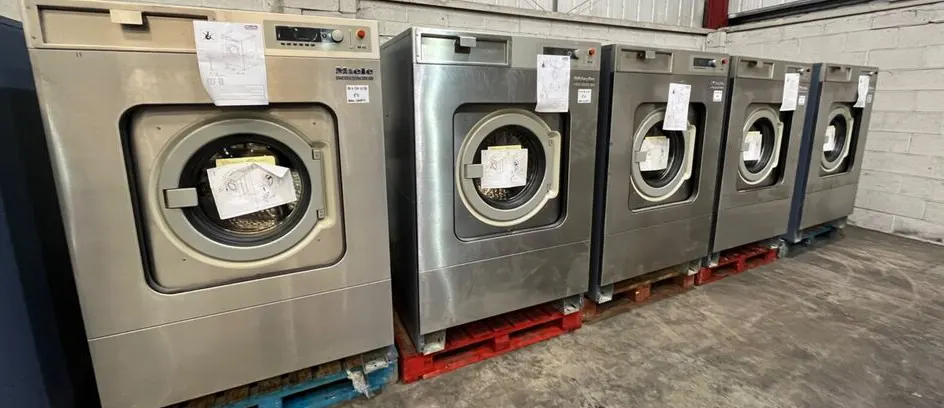
The life expectancy of washers and dryers depends on many factors, including the make, model, frequency of use, and maintenance practices. On average, washers and dryers have 10-15 years of lifespan. Here are the factors that affect lifespan:
- Washing machines: Frequent use can cause rapid wear and tear; the average washer is designed to be used 2-3 times a week.
- Load size: Constant machine overloading can cause the tank bearings to wear out quickly.
- Maintenance: Regular cleaning and the use of cleaning solutions or unique products will prolong the life of your washing machine.
- Water quality: Hard water can lead to the formation of mineral deposits, affecting the heating element’s wear.
- Dryers: Dryers typically last 10 to 15 years. In addition to the factors listed above, their service life can be influenced by individual characteristics.
- Ventilation: Proper ventilation is critical to prevent overheating and maintain efficiency.
- Lint Removal: Regular cleaning of the lint catcher and ventilation system is essential to prevent fire hazards and ensure efficient operation.
Lifespan of Ovens and Stoves
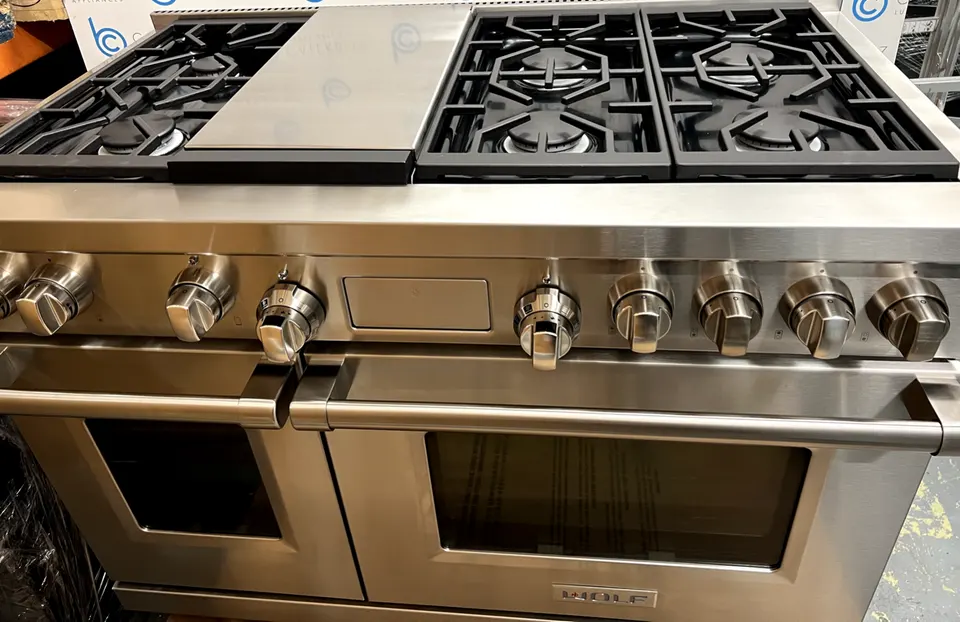
The service life of ovens and ovens is long and depends on the quality of the components, the brand, and the intensity of use. Due to their design, there is nothing to break, and repairs are easy. Many ovens and stoves last more than 20 years. The need for replacement is usually due to natural causes such as corrosion of metal parts, loss of appearance, lack of spare parts, or upgrading to other models with advanced technology.
- Ovens: Ovens have a lifespan of approximately 10-15 years. Electric ovens are believed to last a little less than gas ovens because of the heating elements, which can wear out faster. But I, for example, have researched and can say that this is not true and that the lifespan of gas and electric ovens is the same.
- Stoves (including cooktops): Gas stoves tend to last longer than electric stoves and can last more than 20 years, although the generally accepted life expectancy is 15 years. The fact is that there is nothing to break down in a gas stove. A common fault is corrosion of the gas burners; very often, spare parts cannot be bought if the stove is old.
Electric stoves have a lifespan of around 15 years. A common fault is the failure of the heating element; if it is replaced, it can have a lifespan of over 20 years.
In conclusion, the service life of ovens and stoves depends mainly on the quality of the artistry, the intensity of use, and the level of care. Regular maintenance and careful use can significantly extend their performance and efficiency.
Service life of air conditioners
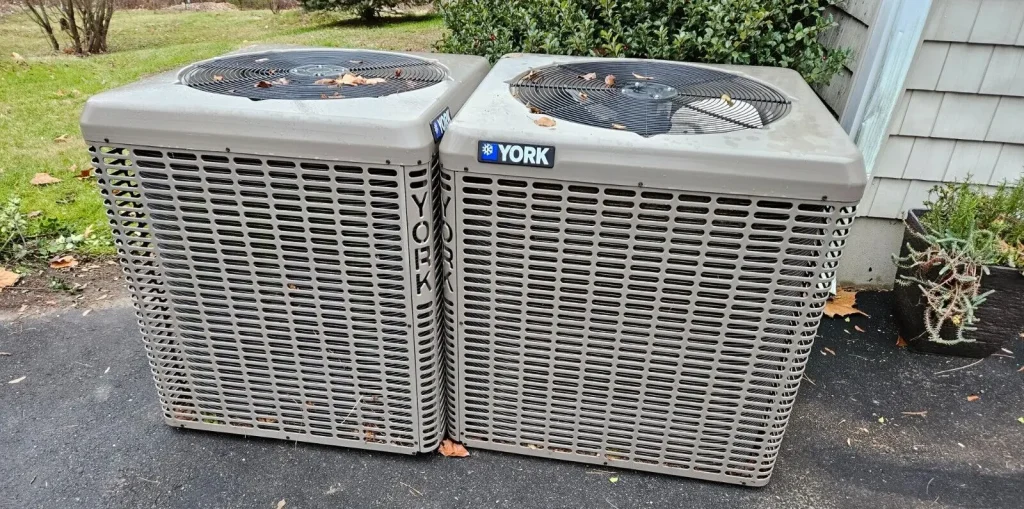
The service life of air conditioners depends on the type of unit. On average, the following approximate service life can be distinguished for different types of air conditioners:
- Window air conditioners: The lifespan of these units is usually around 15 years. However, their efficiency and durability may decrease without regular maintenance, which includes cleaning the filters and checking the refrigerant.
- Mobile Air Conditioners: Mobile (portable) air conditioners typically have a 5-10-year lifespan, depending on the intensity of use and care.
- Split and multi-split systems: These systems often have a longer lifespan, which can be as long as 15-20 years. However, the service life is very much affected by proper installation, especially the routing of the refrigerant line; if the line has many bends, the efficiency is reduced, and the compressor works with excessive load.
- Central Air Conditioners: Central air conditioning systems also have a service life of approximately 15-20 years. Again, longevity is affected by proper installation and timely maintenance.
Air conditioner repair: the main problems that can be encountered are fan start capacitors and compressor aging, clogging of the cooling radiator honeycomb, and natural loss of refrigerant. In case of compressor malfunction, which also sometimes happens, repair is not expedient; even after replacement, it is unlikely that your air conditioner will work for a long time. The reason is that at factories, soldering of the system is carried out in an oxygen-free environment (in the zone of inert gas) that prevents the formation of scale and its penetration into the system. Such work can be performed in domestic conditions or a small workshop, but, in this case, the actual technology is not observed, which ultimately has a detrimental effect on the operation of the device.
Service life of water heaters
- Storage Water Heaters: Traditional gas or electric storage water heaters typically have a life expectancy of up to 15 years, with proper maintenance and repair for over 20 years. Regular maintenance, including descaling and checking the anode protection, can increase their longevity.
- Flow-through (tankless) Water Heaters: flow-through water heaters typically last longer than storage water heaters and can last up to 20 years or more. The main factor affecting their longevity is water quality. Hard water can accelerate wear and tear and require more frequent maintenance.
- Solar Water Heaters: Solar water heaters can have a lifespan of up to 20 years, primarily if they are regularly maintained and located in a favorable climate. Regular cleaning of the panels and water circulation system helps increase their efficiency and longevity.
- Heat Pumps for Water Heaters: Water heaters with heat pumps can last up to 15 years or more due to their energy efficiency and less wear and tear on components.
Proper installation and regular maintenance are vital to keeping them running.
The basis for the longevity of water heaters is water; depending on the quality of water treatment, the life of the water heater can vary widely.
Service life of microwaves
A microwave can last from 7 to 12 years. The service life of microwave ovens is usually about ten years. If the microwave oven is used incorrectly, the main causes of failure are grease getting on the mica plate in the chamber and, as a consequence, burning out. This leads to a short circuit of the magnetron radiation and burning out of the protective cap of the magnetron. If you hear crackling or clicking noises in the microwave, this is a mica plate malfunction. It’s not a difficult repair, but if you care for your microwave properly, it will last much longer. For example, I have a Samsung microwave that is 20 years old, it has problems, the touch buttons don’t press well, you can’t see the lettering well, but it works.
Service life of small household appliances rice cookers, kettles, toasters, irons, coffee makers
Service life of small household appliances 3-5 years. It all depends on the intensity of use. For example, you can use a rice cooker and 20 years, if you cook rice 1 time a week. But if you use it 4 times, the service life is likely to be reduced by 4 times. In small household appliances manufacturers proceed from the time of use, for example, let’s look at the example of a hair dryer, it is assumed that you use the hair dryer 4 times a week but 15 minutes, for a year of use of the hair dryer is assumed 60 hours, the resource of the hair dryer 180 hours, will use less, the hair dryer will last longer.
Can appliances last 20 years?
Indeed, the potential for household appliances to last 20 years or more dramatically depends on various factors, including the quality of the materials. Durable metals, high-grade plastics, robust enamel coatings, and reliable components collectively contribute to the longevity of these appliances. However, the trend of manufacturing long-lasting appliances has significantly changed over time.
In earlier decades, manufacturers often emphasized their products’ durability, with advertisements stating that their appliances would serve families for generations. Such claims are rare in today’s market. The contemporary business model for many manufacturers focuses on designing appliances with a specific lifespan in mind, encouraging consumers to replace rather than repair them when they encounter issues.
This shift is illustrated by experiences like yours with the Philips vacuum cleaner. After ten years, the plastic clips on the hose broke, and a replacement part was unavailable due to being discontinued. This situation exemplifies a common strategy in modern manufacturing: components for older models are phased out, making repairs difficult or impossible, thereby nudging consumers towards purchasing new products.
In summary, while household appliances can last for two decades or more, this longevity is increasingly uncommon due to changes in manufacturing practices and business strategies. The focus has shifted from creating durable products to designing appliances with a predetermined lifespan, aligning with a consumer culture that frequently replaces rather than repairs.


